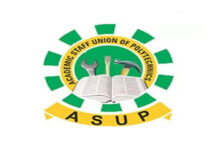The Kwara State Government and the United Nations International Children’s Emergency Fund (UNICEF) have renewed their partnership in the education sector after a 13-year hiatus. This renewed collaboration aims to provide quality basic education to children in the state by equipping 3,000 teachers with digital literacy skills. The goal is to improve the education of around 120,000 students within a year.

At the launch of the Nigeria Learning Passport (NLP) in Kwara State, UNICEF’s Chief of the Kaduna Field Office, Mrs. Gerida Birukila, emphasized the significance of the partnership. The NLP is an online platform designed to provide continuous access to quality education, particularly for students who are out of school or live in areas with limited access to technology or school facilities. Birukila stated that the renewed collaboration marked a fresh start between UNICEF and Kwara State in addressing educational challenges.
Kwara State is the 20th state in Nigeria to adopt the NLP, which was initially created by UNICEF and Microsoft to address the disruption in education caused by the COVID-19 pandemic. During the pandemic, over 1.6 billion students worldwide were affected by school closures. Since its introduction in 2022, the NLP has enrolled more than 1.4 million students. The platform is available for free, both online and offline, and in partnership with Airtel, users can access the NLP without incurring data costs.
In her address, Birukila praised Kwara State for its dedication to improving education, highlighting initiatives such as StudyLab, KwaraLearn, and the establishment of digital learning centers. These efforts, she noted, have put digital education at the forefront of the state’s education strategy.
Governor AbdulRahman AbdulRazaq, represented by the Secretary to the State Government, Professor Mamman Jibril, reaffirmed the state’s commitment to improving education. The governor outlined the administration’s achievements, including resolving issues related to unpaid salaries and poor learning environments. He stated that the government’s focus is now on enhancing teaching quality and learning outcomes through a unified curriculum and modern technological tools.
Governor AbdulRazaq also mentioned the state’s investment in digital literacy centers in partnership with the Universal Basic Education Commission (UBEC), which has led to improved literacy and numeracy levels, increased student enrollment, and a reduction in the number of out-of-school children.
The renewed partnership between Kwara State and UNICEF aims to significantly impact the education sector by using digital tools to provide quality education to children, ensuring that even those in the most remote areas have access to learning opportunities. This initiative marks a significant step toward addressing the state’s educational challenges and preparing children for a brighter future.



